Mrauk-U Youths Association-MUYA ၏ (၄)ကြိမ်မြောက်ညီလာခံအခမ်းအနားဂို ၂၉.၁၂.၂၀၂၄ နိန့်မှာအောင်အောင်မြင်မြင်နန့်ကျင်းပပြီးစီးလားဗျာလ်ဖြစ်ပါရေ





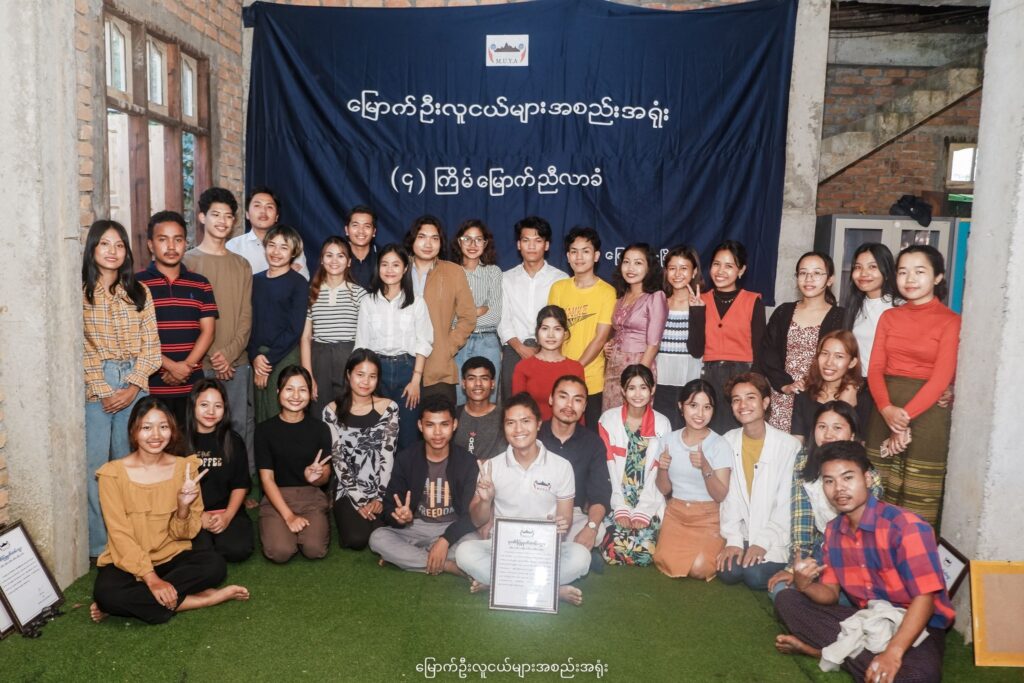



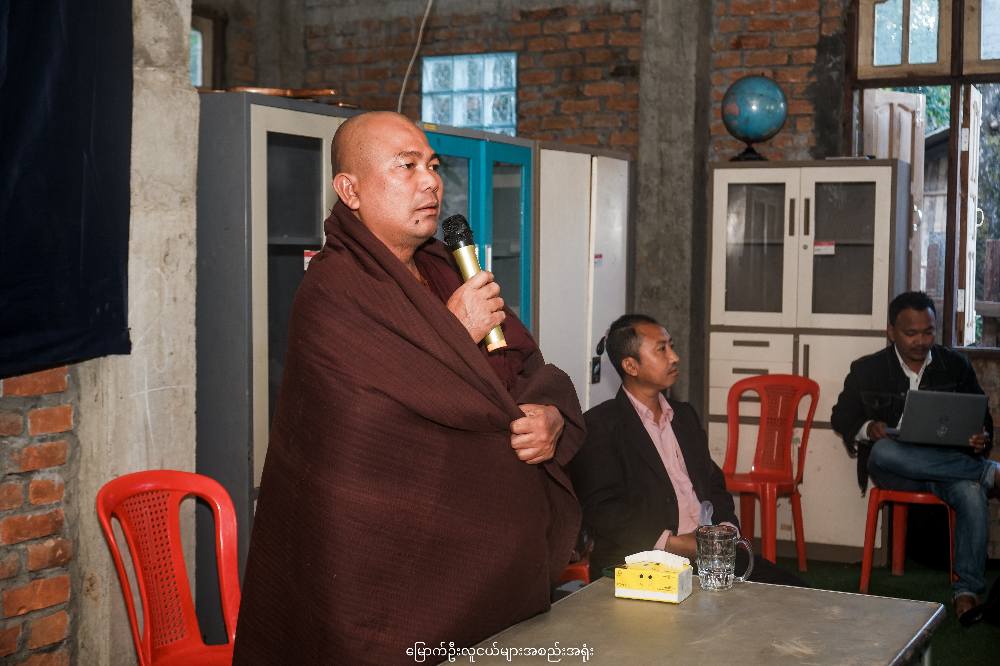





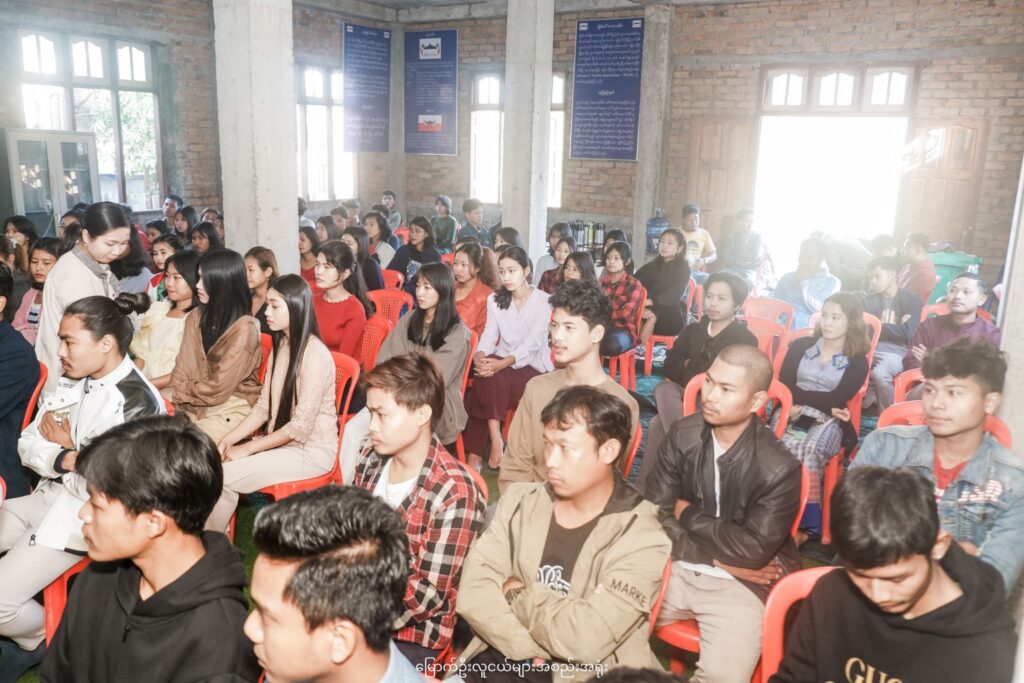
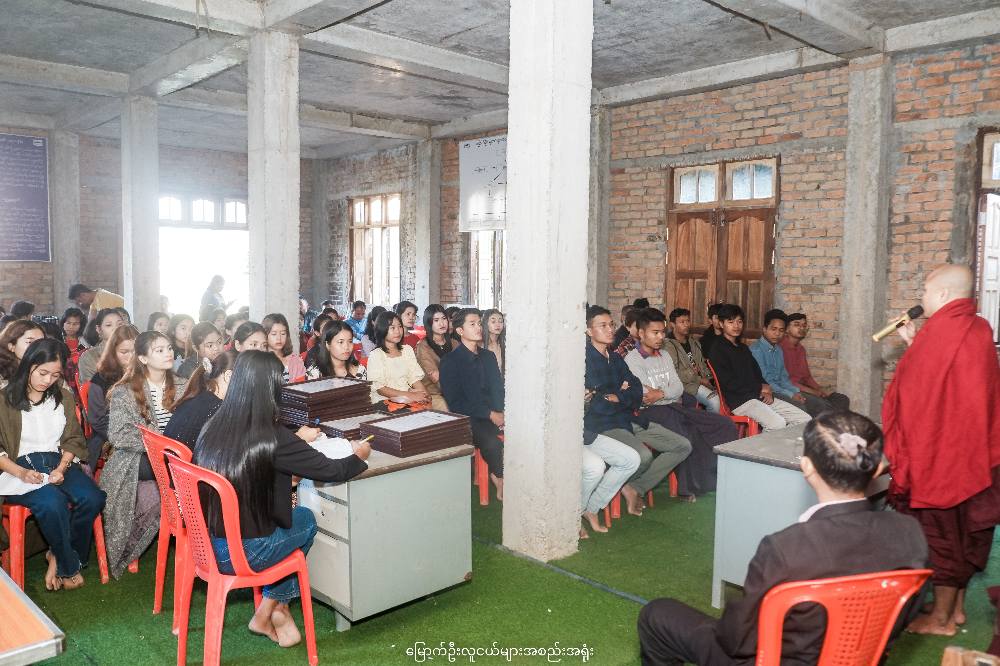







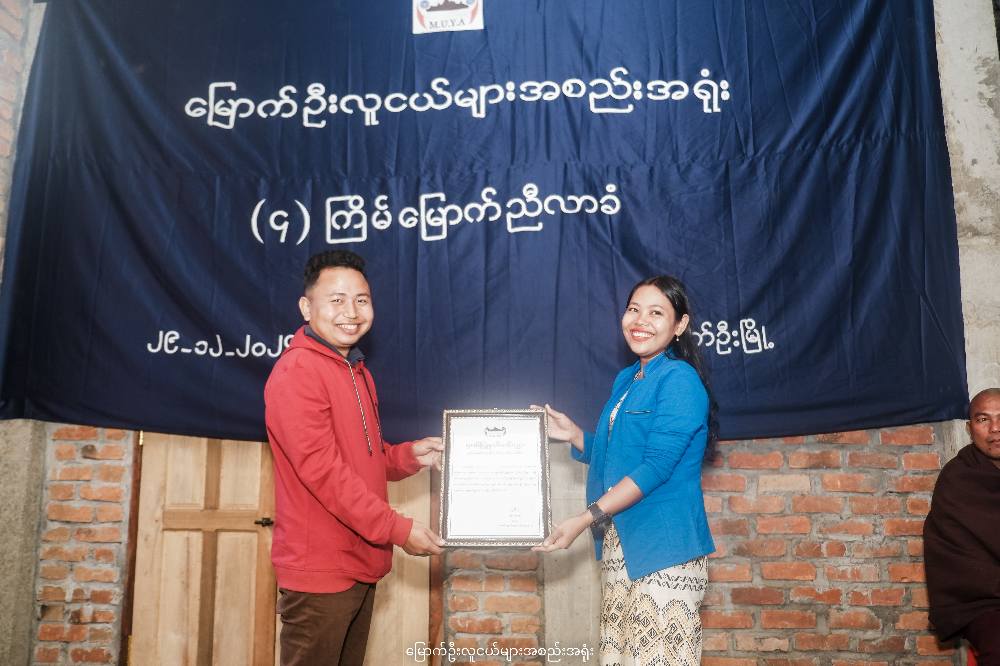






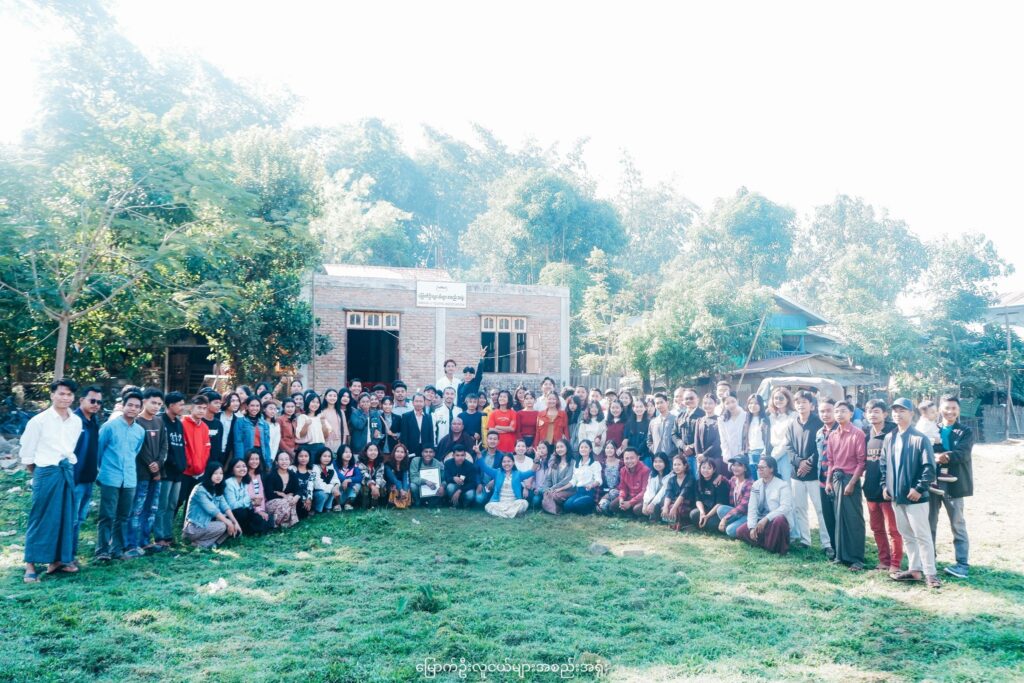


Mrauk-U Youths Association-MUYA ၏ (၄)ကြိမ်မြောက်ညီလာခံအခမ်းအနားဂို ၂၉.၁၂.၂၀၂၄ နိန့်မှာအောင်အောင်မြင်မြင်နန့်ကျင်းပပြီးစီးလားဗျာလ်ဖြစ်ပါရေ


































In contemporary society, the role of youth leadership has gained unprecedented significance. Young leaders are essential for fostering innovation, driving change, and promoting sustainable development within their communities. As the architects of their own futures, today’s youth possess unique insights and perspectives that can significantly influence the direction of societal progress.
Nurturing leadership qualities in young individuals is paramount for crafting a resilient community. Engaging young people in leadership roles encourages them to contribute actively to societal issues, thereby fostering a sense of responsibility and ownership. This stage of development is vital, as it not only equips them with essential skills but also empowers them to become proactive participants in cultivating a thriving civil society. By instilling leadership capabilities early, communities build a strong foundation for future generations, ensuring a continuous flow of innovative ideas and solutions.
Moreover, empowered youth have already demonstrated their potential to instigate positive changes across various spheres, including education, environmental advocacy, and social justice. For instance, many youth-led organizations have emerged, championing causes that address critical challenges such as climate change and inequality. Their contributions extend beyond mere participation; they actively shape policies and influence public sentiment, showcasing that they are not just passive observers but key stakeholders in the decision-making process.
The connection between youth engagement and community success is evident. When young leaders are given the platform to express their views and put their ideas into practice, they not only enhance their capabilities but also invigorate the community. Their visions for a better tomorrow can pave the way for transformative initiatives, underscoring the idea that today’s youth are already making impactful contributions, thus affirming their vital role in our collective future.
Leadership is a multifaceted skill that can be developed through specific behaviors and practices among youth. Cultivating leadership qualities requires a focus on essential skills such as communication, teamwork, and critical thinking. Effective communication is vital, as it enables young leaders to articulate their ideas clearly and inspire others. Participating in group activities fosters teamwork, teaching youth how to collaborate toward shared goals, which is a fundamental aspect of leadership. Additionally, critical thinking equips them with the ability to analyze situations and make informed decisions, further enhancing their leadership effectiveness.
Mentorship and role modeling also play a crucial role in developing leadership among young people. Having access to mentors who can offer guidance and share their experiences empowers youth to navigate challenges more effectively. Role models can inspire young individuals to adopt positive behaviors by demonstrating resilience and ethical practices. Learning from the experiences of others helps youth understand the responsibilities associated with leadership and the impact their actions can have on their communities.
Moreover, various mechanisms can assist youth in enhancing their leadership capabilities. Educational programs that emphasize leadership development incorporate both theoretical and hands-on experiences. Community involvement offers practical applications of leadership skills, creating opportunities for volunteering and civic engagement. Personal development initiatives, such as workshops and leadership courses, provide essential training and self-awareness. Creating a supportive environment is also critical; youth thrive when they feel encouraged to demonstrate positive behavior and effort.
By investing in these practices and resources, society can nurture a generation of effective leaders. As youth develop these leadership qualities, they become equipped to contribute positively to society, paving the way for a peaceful and prosperous future.
Youth leadership plays a pivotal role in shaping a prosperous future, as young individuals stand at the forefront of societal change. Empowering today’s youth to assume leadership positions is essential for cultivating a proactive and engaged community. By harnessing their unique perspectives, creative problem-solving abilities, and innovative thinking, young leaders can effectively address the complexities of modern society. Their involvement in leadership activities not only equips them with the necessary skills but also fosters a sense of responsibility towards their communities.
The impact of youth-led initiatives serves as a testament to the potential of engaged young individuals. For instance, various movements advocating for environmental sustainability, social justice, and mental health awareness have emerged from youth-led platforms. Organizations like Fridays for Future, spearheaded by young climate activist Greta Thunberg, showcase how motivated youth can rally global attention towards pressing issues. Such initiatives highlight the direct correlation between youth engagement and meaningful societal progress.
Additionally, fostering leadership skills among youth contributes to the emergence of effective leaders who are capable of driving positive change. By investing in programs that teach critical thinking, collaboration, and communication, communities can nurture the qualities that define strong leadership. This investment yields dividends, as young leaders bring fresh ideas and diverse perspectives to the decision-making table, enriching discussions that ultimately lead to innovative solutions for contemporary challenges.
Moreover, encouraging youth participation in leadership roles cultivates a culture of inclusivity and empowerment. As young individuals assume responsibility, they inspire their peers and create a ripple effect that encourages widespread civic engagement. Through mentorship programs and collaborative projects, today’s youth not only develop their leadership potential but also contribute to a more vibrant and sustainable future. The path forward is clear: empowering youth leadership today will undoubtedly shape a brighter tomorrow for all.
In an era characterized by rapid change and increasing complexity, it is paramount to cultivate leadership skills among the youth. This can be achieved through several practical strategies aimed at empowering young individuals to emerge as effective leaders within their communities. One of the most effective approaches involves the establishment of mentorship programs. Mentorship pairs young people with experienced leaders who can offer guidance, support, and insight into the nuances of leadership. Such relationships foster the transfer of valuable knowledge and skills, helping youth to develop self-confidence and a stronger sense of purpose.
Community involvement is another critical avenue for enhancing leadership capabilities. Engaging in local projects and initiatives not only allows youth to actively participate in societal issues but also teaches them the importance of collaboration, communication, and problem-solving. By participating in these projects, young leaders can learn how to mobilize resources and inspire others while experiencing the practicalities of leadership. Schools and organizations should encourage students to take on leadership roles in community service, volunteer programs, and civic engagement activities.
Furthermore, creating educational opportunities that focus specifically on leadership training is essential. Institutions can incorporate programs that emphasize critical thinking, conflict resolution, and emotional intelligence into their curricula. Workshops, seminars, and extracurricular activities can serve as platforms for young individuals to practice and refine their leadership skills. Importantly, an environment that nurtures initiative and responsibility is crucial. By fostering a culture of encouragement, where youth are supported in taking risks and pursuing their ideas, society can groom the next generation of leaders. Best practices and successful models from around the globe, such as youth councils and leadership camps, should be studied and adapted to local contexts. These strategies collectively serve to empower today’s youth to navigate future challenges and contribute positively to a sustainable and inclusive society.
In today’s rapidly evolving world, the importance of youth leadership cannot be overstated. Young individuals bring fresh perspectives, innovative ideas, and a sense of urgency that is essential for addressing global challenges. Their engagement in leadership roles fosters a more inclusive environment, ensuring that a diverse range of voices is heard in decision-making processes. This is particularly vital in regions like Rakhine State, where youth are often at the forefront of social change and community development.
Moreover, the emergence of effective leaders among today’s youth depends not solely on their inherent qualities, such as creativity and resilience, but also on their commitment to developing crucial leadership skills. Skills such as communication, teamwork, and critical thinking are pivotal for young leaders to navigate complex societal issues. By participating in mentorship programs, workshops, and collaborative projects, youth can enhance their capabilities and cultivate their leadership styles. This proactive approach is critical in shaping responsible leaders who are equipped to address the multifaceted challenges of the future.
Several youth-led initiatives exemplify the potential for young leaders to create significant change. For instance, movements advocating for environmental sustainability often arise from the passionate efforts of young activists who mobilize their peers and communities. These groups not only raise awareness but also implement tangible actions that inspire civic engagement and societal responsibility. Such initiatives not only bolster leadership qualities among participants but also lay down the foundation for a more engaged and responsible youth society.
As the dynamics of leadership continue to shift, recognizing the critical role of youth is paramount. An engaged youth demographic can drive collective growth and transform local and global landscapes, developing leaders who are passionate, competent, and ready to take on the challenges of tomorrow.
In an ever-evolving global landscape, cultivating effective leadership qualities in today’s youth is paramount for fostering future generations of responsible leaders. Education plays a vital role in this endeavor, equipping young individuals with critical thinking skills and a well-rounded knowledge base. By encouraging participatory learning environments, where students engage in discussions and collaborative projects, educational institutions can nurture leadership potential from a young age.
Moreover, mentorship provides invaluable guidance that shapes young leaders. Establishing mentorship programs connects youth with experienced professionals who can impart wisdom, advice, and support. These programs often create pathways for networking and foster relationships that can significantly enhance leadership skills. Mentors not only serve as role models but also help cultivate essential characteristics such as integrity and empathy—fundamental traits for effective leadership.
In addition to education and mentorship, community engagement is a powerful avenue for developing leadership qualities. By participating in community service initiatives, young individuals learn the importance of collaboration and social responsibility. Grassroots movements, which have gained traction in recent years, empower youth to voice their concerns and act on pressing issues. This engagement fosters a sense of ownership and commitment to driving positive change in their communities.
Youth must also stay informed about contemporary challenges, ranging from environmental concerns to social injustices. Accessing various media platforms and participating in discussions about current events can enhance their understanding of complex issues. This awareness allows young leaders to approach problems with a informed perspective, making them better equipped to propose meaningful solutions.
By focusing on these strategies—education, mentorship, community involvement, and staying informed—youth can effectively develop the leadership qualities necessary to shape a brighter future. Investing in these foundational aspects ensures that today’s youth are ready to take on leadership roles and contribute proactively to their societies.
In contemporary society, youth leadership emerges as a fundamental pillar for fostering progress across diverse domains, including politics, community development, and social movements. Today’s young leaders possess the capacity to enact meaningful change and challenge prevailing norms, serving as catalysts for innovative solutions. By harnessing their energy, creativity, and technological adeptness, they are redefining traditional paradigms and addressing pressing global issues. The essence of youth leadership extends beyond mere representation; it embodies the ability to inspire and mobilize communities towards collective action.
Effective youth leaders exhibit distinct qualities that enable them to navigate complex challenges with agility. Vision stands out as a key trait, empowering these individuals to foresee possibilities and articulate a coherent path forward. This vision often reflects their deep understanding of the issues facing their communities and the broader world. Adaptability further enhances their efficacy, allowing young leaders to remain resilient in the face of shifting circumstances and to embrace new ideas. Additionally, collaboration is critical; young leaders frequently engage with diverse stakeholders, recognizing that multifaceted solutions arise from inclusive dialogue and shared responsibilities.
Numerous young leaders have made indelible marks on society, demonstrating the potential for impactful change. For instance, Greta Thunberg’s climate activism has mobilized millions, compelling governments and organizations to prioritize environmental responsibility. Similarly, Malala Yousafzai’s advocacy for education has ignited conversations around women’s rights and access to schooling globally. These examples illustrate how youth leadership transcends geographical and cultural boundaries, uniting individuals under common goals and inspiring others to take action.
As the world becomes increasingly complex, the need for youth leadership will only intensify. By championing their voices and leveraging their strengths, today’s youth possess the power to address contemporary challenges, ultimately paving the way for a better society. The future of leadership lies in their hands, and as they continue to rise, so does the potential for transformative societal change.
Building effective leadership skills among youth is crucial for developing the leaders of tomorrow. A robust framework for cultivating these skills includes educational programs, mentorship opportunities, and community service engagement, all of which play a significant role in shaping responsible and proactive individuals. Educational initiatives should focus on critical thinking, effective communication, and problem-solving abilities. By incorporating leadership training into school curricula, young individuals can develop a foundation in these essential competencies.
Mentorship programs also contribute immensely to cultivating leadership skills. Pairing experienced leaders with youth can provide guidance and support, allowing young leaders to learn from real-life examples. Mentors can share valuable insights into leadership dynamics, help navigate challenges, and encourage the exploration of innovative ideas. Through these relationships, youth can gain the confidence needed to take initiative in various situations, which is indispensable for their growth.
Active participation in community service fosters a sense of responsibility and purpose. By engaging in local projects, youth can apply their skills in real-world scenarios while positively impacting their communities. In the context of Rakhine state, youth involvement in development initiatives is particularly meaningful. It not only supports community needs but also nurtures a culture of civic engagement, wherein young individuals understand their roles in societal advancement.
To effectively cultivate leadership skills in our youth, organizations and individuals can consider several actionable steps. Creating volunteer programs that align with youth interests promotes engagement. Additionally, schools should incorporate leadership workshops and activities into their programs to enhance skill acquisition. Finally, fostering a supportive environment that values youth opinions will empower them to express themselves and take charge, laying the groundwork for effective leadership in the future.
The role of youth in shaping leadership in contemporary society has become increasingly significant. Today’s young leaders are imbued with unique qualities such as creativity, adaptability, and a strong sense of social justice, making them well-equipped to address pressing global challenges. With the rapid transformation of our world, characterized by technological advancements and social shifts, the perspectives that youth bring forth are imperative in redefining traditional leadership paradigms.
Young individuals possess an innate ability to think critically and innovatively about issues that affect them and their communities. Their engagement in community initiatives plays a vital role in fostering leadership skills. For instance, youth-led movements addressing climate change, social inequality, and mental health awareness emphasize the potential of young leaders to inspire change proactively. Programs that promote civic engagement enable youth to not only participate but also to take charge of initiatives that resonate with their values and concerns. These programs help cultivate essential skills, including public speaking, teamwork, and strategic planning.
Moreover, the impact of youth-led initiatives is evident in various success stories worldwide. Young activists, entrepreneurs, and community organizers are demonstrating that age does not limit one’s ability to lead. These individuals exemplify how youth can serve as catalysts for societal change, pushing for reforms and innovative solutions rooted in their lived experiences. As they harness their passions and harness support from peers and mentors, the leadership potential within today’s youth can be fully realized, ensuring a brighter future.
With their distinctive views and commitment to various causes, the future of leadership is increasingly being placed in the hands of the younger generation. By nurturing their talents and providing platforms for their voices, we can support the next wave of transformative leaders who are poised to make a significant impact on our world.
Effective leadership among youth is essential for fostering a generation that can navigate the complexities of modern society. To cultivate these leadership qualities, it is critical to focus on key skills such as communication, problem-solving, and emotional intelligence. Engagement in mentorship programs plays a pivotal role in this development, as experienced leaders can guide young individuals, offering insights and sharing their knowledge. Various educational institutions are also implementing leadership curricula that emphasize critical thinking and collaboration, providing youth with the tools necessary to become impactful leaders in their communities.
Community involvement is a significant element in the pursuit of leadership skills. When youth participate in local initiatives, they gain firsthand experience in teamwork, negotiation, and adaptability. These interactions not only build essential soft skills but also encourage a sense of belonging and responsibility towards communal well-being, ultimately striving for a collaborative atmosphere. In regions like Rakhine State, establishing a cohesive youth community has the potential to enhance peace and prosperity by fostering mutual respect and understanding among diverse groups.
However, the journey towards effective leadership can be fraught with challenges for youth. Factors such as limited resources, socio-economic disparities, and a lack of adequate role models may hinder their development. To overcome these obstacles, it is crucial to implement actionable solutions such as partnerships between organizations and schools to provide more comprehensive leadership programs. Encouraging peer-led initiatives can also empower youth, giving them the confidence to take charge and inspire others. Creating environments that support and nurture young leaders will contribute to the overall strength of communities, preparing them for future challenges while promoting a culture of collaboration and respect.
The role of youth in leadership has grown increasingly significant in contemporary society. In light of rapid global changes, the youth of today are not merely passive observers; they are active participants in shaping the future. The importance of youth leadership is underscored by their capacity to bring fresh perspectives, innovative ideas, and a profound understanding of pressing societal issues. As the decision-makers of tomorrow, young leaders are essential in addressing challenges such as climate change, social justice, and economic inequality.
Today’s youth embody a unique blend of adaptability and creativity, qualities that are vital in confronting the complex problems we face. They are not only entrusted with the responsibility of leading future initiatives but are also making strides in various sectors through impactful youth-led initiatives. One notable example is the rise of youth activism around climate issues, where young individuals mobilize their peers and communities to advocate for sustainable practices and hold leaders accountable for environmental stewardship. These movements illustrate the power of youth leadership in driving significant change and shaping public discourse.
Moreover, youth leadership fosters essential life skills such as critical thinking, collaboration, and effective communication. These skills are imperative in cultivating socially responsible leaders who understand the implications of their decisions. By encouraging youth to engage in community service, advocacy, and other leadership roles, society can improve the capacity of young individuals to contribute meaningfully to sustainable development goals. Investing in youth leadership initiatives not only empowers young people but also reinforces the foundation for a resilient and equitable future.
Ultimately, creating opportunities for young leaders to thrive and make an impact is imperative. Their involvement lays the groundwork for innovative solutions and progressive policies that can address today’s challenges effectively. Nurturing youth leadership is, therefore, essential for ensuring a sustainable future that resonates with the values and needs of all members of society.
Developing leadership skills in young people is a multifaceted process influenced by several interrelated factors. Effective leadership stems from personal effort, consistent behavior, and the impact of mentorship. Young individuals must first recognize their potential and demonstrate a willingness to step out of their comfort zones. This self-awareness is crucial as it allows them to engage actively in opportunities that foster leadership, such as participating in school clubs, sports teams, and community initiatives.
An educational framework that prioritizes the cultivation of leadership skills is essential. Schools and educational institutions play a pivotal role in shaping future leaders by integrating leadership training into their curricula. This can include courses in communication, teamwork, and conflict resolution, which are fundamental to effective leadership. Furthermore, hands-on projects such as community service can instill a sense of responsibility and enhance their ability to work collaboratively within diverse groups.
Community involvement is another significant factor in nurturing young leaders. Programs that encourage youth participation in local governance, environmental initiatives, or social justice movements can empower them to take active roles in shaping their communities. Exposure to real-world challenges equips them with critical thinking and problem-solving skills, essential attributes of effective leaders. Moreover, such involvement often fosters a sense of belonging and purpose, further motivating young individuals to pursue leadership roles.
The presence of positive role models is crucial in this developmental journey. Adults who demonstrate exemplary leadership can inspire and guide youth, providing the encouragement needed to develop their aspirations. Mentoring programs, where experienced leaders and professionals commit to nurturing young talent, serve as vital support systems. By fostering environments that prioritize education, community engagement, and mentorship, we can help young individuals flourish as capable leaders. The collective efforts in nurturing these skills are paramount for the sustainable growth and peace of communities, especially in regions like Rakhine.
ခေတ်စနစ်ကို ရင်ဘောင်တန်းနိုင်ပြီး အကျင့်စာရိတ္တကောင်းမွန်သော အဖွဲ့အစည်းနှင့် နေထိုင်တတ်သည့်လူငယ်ထုတစ်ရပ်တည်ဆောက်နိုင်ရေးသည် ငြိမ်းချမ်းသာယာဖွံ့ဖြိုးသော ရခိုင်ပြည်ကြီးဖြစ်ပေါ်လာရေးအတွက် အသက်သွေးတမျှအရေးကြီးသည်ဟု လက်ခံယုံကြည်သည်။
ခေတ်စနစ်ကို ရင်ဘောင်တန်းနိုင်ပြီး အကျင့်စာရိတ္တကောင်းမွန်သော အဖွဲ့အစည်းနှင့် နေထိုင်တတ်သည့်လူငယ်ထုတစ်ရပ်တည်ဆောက်နိုင်ရေးသည် ငြိမ်းချမ်းသာယာဖွံ့ဖြိုးသော ရခိုင်ပြည်ကြီးဖြစ်ပေါ်လာရေးအတွက် အသက်သွေးတမျှအရေးကြီးသည်ဟု လက်ခံယုံကြည်သည်။
© 2025 Mrauk U Yoiuths AssocIation. All Rights Reserved